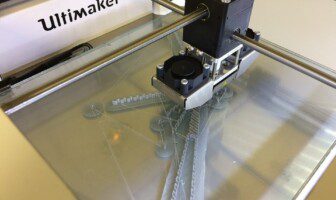
A report by a leading global research firm shows that 81% of companies globally are investing in robotic process automation (RPA) technology for process efficiency and cost savings.
Compared with investments in other technologies, the highest focus is on RPA, which is around 53%. With such a huge focus on RPA across industries, how does it apply to your business? In this article, we will answer these questions in detail.
What is RPA?
RPA technology makes machines or robots emulate human behavior. Technologies such as artificial intelligence (AI) and machine learning (ML) further augment RPA and make robots smarter.
A typical example of RPA is the automotive sector. Before RPA, humans worked at every touchpoint across the assembly line. This process was inefficient, prone to errors, and cost-intensive. With robotic arms working across the assembly line, manufacturers can now produce a vehicle in 18–35 hours with an average of 30,000 parts.
RPA applications
RPA is the tool for efficiency in contemporary businesses. As RPA replaces humans, businesses should see it as an opportunity to upskill their employees for other important tasks. The following sectors are just a snapshot of why there is a massive focus on RPA.

1. Education
The education sector is witnessing a massive change, especially after the COVID-19 pandemic. Teachers and administrative staff in educational institutions have always been swamped with manual work. But RPA is changing how schools operate, improving the overall experience.
For example, RPA assists in online admissions, designating assignments for students, scheduling parent-teacher meetings, uploading and publishing exam results and grades, and collecting fees.
2. Financial services
The financial sector requires extensive human labor for data entries, bank reconciliations, loan processing, customer vetting, underwriting, and a range of other jobs. RPA in banking gathers and augments data in such a way that it reduces manual jobs and increases efficiency.
For example, by using RPA, banks could speed up loan processing times by filling up digital applications, checking customer credit scores, and underwriting. This not only saves costs but also enhances customer experience. RPA also helps in collating information from diverse systems into a central ERP for analysis. It gathers and augments data in compliance with data security regulations.
3. Transportation and logistics
Transportation and logistics are operation-intensive businesses. Companies have to track packages, pick up and deliver on time, handle returns, and ensure the best use of vehicles — all at the same time. Inefficient use of cars leads to mounting expenses and higher emissions that damage the environment.
RPA quickly extracts data from diverse systems to make the process efficient. The system can generate invoices, update inventory levels, select the nearest supplier to place orders, track vehicles on the road, and even schedule them for maximum fuel and time efficiency.
4. Healthcare
RPA has transformed how hospitals, pharmacies, and drug manufacturers work. It has significantly improved a patient’s experience in hospitals.
Hospitals, on the other hand, can save costs and maintain patient records efficiently. Mundane tasks such as data entry and invoice generation transpire automatically and precisely, thanks to the bots. The pharmaceutical sector is extensively using RPA to produce drugs and vaccines, thus serving people at scale.
Benefits of RPA For Your Business
As we observe the challenges of legacy operation techniques, it becomes apparent that modern technology could ease the industrial pressure. RPA benefits your internal processes and external customers in the following ways:

- Delivers high-quality data with valuable insights into your business
- Enhances the customer experience
- Eliminates manual processing errors and achieves 100% accuracy
- Collaborates with the clients better to deliver the right solution at the right time
- Maximizes process automation to achieve a high return on investment
Conclusion
In the age of growing competition and declining profit margins, automation and process efficiency is the solution to survive and thrive.
Enterprises that commit to RPA must engage in structural development. Such a drastic change might be overwhelming while keeping business operations afloat.
RPA services from experts can help your business create a bulletproof strategy, get successful implementation, achieve faster deployment, and measure performance based on KPIs. An RPA consultant researches opportunities, implements solutions, and monitors the effectiveness of achieving enterprise-wide intelligent process automation — a blend of RPA and artificial intelligence.
Additionals:




























